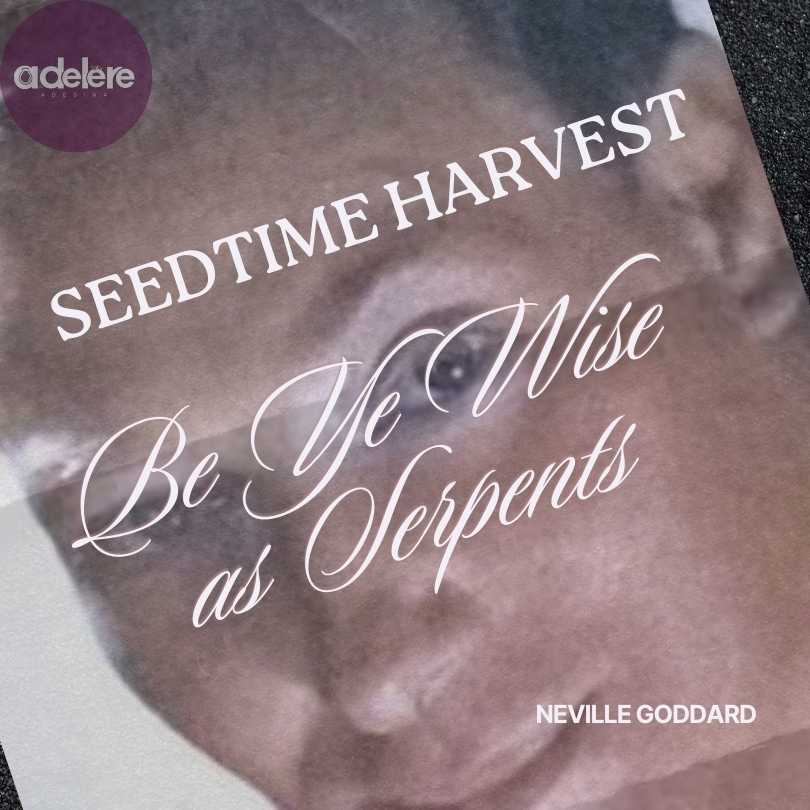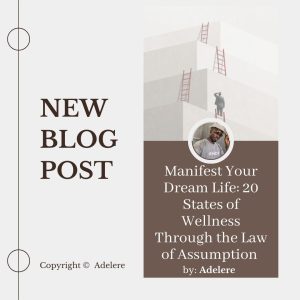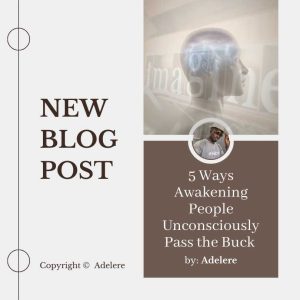
RESTORE YOUR #PERSEVERANCE OF THE #IDEAL: RISE ABOVE THE SUBTLETY OF #GIVINGUP
Reading Time: 2 minutesThere’s a surprising way of thinking that seems to be good, sometimes independent and even positively powerful. Yet it is
WELCOME TO THE POWER OF AWAKENED IMAGINATION ROYAL ACADEMY

CHAPTER SEVEN
“. . .be ye therefore wise as serpents, and
harmless as doves.”
– Matthew 10:16
The serpent’s ability to form its skin by ossifying a portion of itself, and its skill in shedding each skin as it outgrew it, caused man to regard this reptile as a symbol of the power of endless growth and self-reproduction. Man is told, therefore, to be “wise as the serpent” and learn how to shed his skin – his environment – which is his solidified self; man must learn how to “loose him, and let him go” . . . how to “put off the old man” . . .how to die to the old and yet know, like the serpent, that he “shall not surely die”.
Man has not learned as yet that all that is outside his physical body is also a part of himself, that his world and all the conditions of his life are but the outpicturing of his state of consciousness.
When he knows this truth, he will stop the futile struggle of self-contention and, like the serpent, let the old go and grow a new environment.
“Man is immortal; therefore he must die endlessly. For life is a creative idea; it can only find itself in changing forms.” – Tagore
In ancient times, serpents were also associated with the guardianship of treasure or wealth. The injunction to be “wise as serpents” is the advice to man to awaken the power of his subtilized body – his imagination – that he, like the serpent, may grow and outgrow, die and yet not die, for from such deaths and resurrections alone, shedding the old and putting on the new, shall come fulfillment of his dreams and the finding of his treaures. As “the serpent was more subtile than any beast of the field which the Lord God had made” – Genesis 3:1 – even so, imagination is more subtile than any creature of the heavens which the Lord God had created. Imagination is the creature that:
“. . .was made subject to vanity, not willingly, but by reason of him who hath subjected the same in hope. . .For we are saved by hope: but hope that is seen is not hope: for what a man seeth, why doth he yet hope for it? But if we hope for that we see not, then do we have patience wait for it.”
– Romans 8:20, 24, 25
Although the outer, or “natural”, man of the senses is interlocked with his environment, the inner, or spiritual, man of imagination is not thus interlocked. If the interlocking were complete, the charge to be “wise as serpents” would be in vain. Were we completely interlocked with our environment, we could not withdraw our attention from the evidence of the senses and feel ourselves into the situation of our fulfilled desire, in hope that that unseen state would solidify as our new environment. But:
“There is a natural body, and there is a spiritual body.” – I Corinthians 15:44
The spiritual body of imagination is not interlocked with man’s environment. The spiritual body can withdraw from the outer man of sense and environment and imagine itself to be what it wants to be. And if it remains faithful to the vision, imagination will build for man a new environment in which to live. This is what is meant by the statement:
“. . .I go to prepare a place for you.
And if I go and prepare a place for you, I will come again, and receive you unto myself; that where I am, there ye may be also.” – John 14:2, 3
The place that is prepared for you need not be a place in space. It can be health, wealth, companionship, anything that you desire in this world. Now, how is the place prepared?
You must first construct as life-like a representation as possible of what you would see and hear and do if you were physically present and physically moving about in that “place.” Then, with your physical body immobilized, you must imagine that you are actually in that “place” and are seeing and hearing and doing all that you would see and hear and do if you were there physically. This you must do over and over again until it takes on the tones of reality. When it feels natural, the “place” has been prepared as the new environment for your outer or physical self. Now you may open your physical eyes and return to your former state. The “place” is prepared, and where you have been in imagination, there you shall be in the body also.
How this imagined state is realized physically is not the concern of you, the natural or outer man.
The spiritual body, on its return from the imagined state to its former physical state, created an invisible bridge of incident to link the two states. Although the curious feeling that you were actually there and that the state was real is gone, as soon as you open your eyes upon the old familiar environment, nevertheless, you are haunted with the sense of a double identity – with the knowledge that “there is a natural body, and there is a spiritual body.” When you, the natural man, have had this experience you will go automatically across the bridge of events which leads to the physical realization of your invisibly prepared place.
This concept – that man is dual and that the inner man of imagination can dwell in future states and return to the present moment with a bridge of events to link the two – clashes violently with the widely accepted view about the human personality and the cause and nature of phenomena. Such a concept demands a revolution in current ideas about the human personality, and about space, time and matter. The concept that man, consciously or unconsciously, determines the conditions of life by imagining himself into these mental states, leads to the conclusion that this supposedly solid world is a construction of Mind – a concept which, at first, common sense rejects. However, we should remember that most of the concepts which common sense at first rejected, man was afterward forced to accept. These never-ending reversals of judgment which experience has forced upon man led Professor Whitehead to write: “Heaven knows what seeming nonsense may not tomorrow be demonstrated truth.”
The creative power in man sleeps and needs to be awakened.
“Awake thou that sleepest, and arise from the dead.” – Ephesians 5:14
Wake from the sleep that tells you the outer world is the cause of the conditions of your life. Rise from the dead past and create a new environment.
“Know ye not that ye are the temple of God, and that the Spirit of God dwelleth in you?”
– I Corinthians 3:16
The Spirit of God in you is your imagination, but it sleeps and needs to be awakened, in order to lift you off the bar of the senses where you have so long lain stranded.
The boundless possibilities open to you as you become “wise as serpents” is beyond measure.
You will select the ideal conditions you want to experience and the ideal environment you want to live in. Experiencing these states in imagination until they have sensory vividness, you will externalize them as surely as the serpent now externalizes its skin.
After you have outgrown them, then, you will cast them off as easily as “the snake throws her enamell’d skin”. The more abundant life – the whole purpose of Creation – cannot be saved through death and resurrection.
God desired form, so He became man: and it is not enough for us to recognize His spirit at work in creation, we must see His work in form and say that it is good, even though we outgrow the form, forever and ever.
“He leads
Through widening chambers of delight to where
Throbs rapture near an end that aye recedes,
Because His touch is Infinite and lends
A yonder to all ends.”
* * * *
“And, I, if I be lifted up from the earth, will draw all men unto me.” – John 12:32
If I be lifted up from the evidence of the senses to the state of consciousness I desire to realize and remain in that state until it feels natural. I will form that state around me and all men will see it.
But how to persuade man this is true – that imaginative life is the only living; that assuming the feeling of the wish fulfilled is the way to the more abundant life and not the compensation of the escapist – that is the problem.
To see as “though widening chambers of delight” what living in the realms of imagination means, to appreciate and enjoy the world, one must live imaginatively; one must dream and occupy his dream, then grow and outgrow the dream, forever and ever.
The unimaginative man, who will not lose his life on one level that he may find it on a higher level, is nothing but a Lot’s wife – a pillar of self-satisfied salt. On the other hand, those who refuse form as being unspiritual and who reject incarnation as separate from God are ignorant of the great mystery: “Great is the mystery,
God was manifest in the flesh.”
Your life expresses one thing, and one thing only, your state of consciousness.
Everything is dependent upon that.
As you, through the medium of imagination, assume a state of consciousness, that state begins to clothe itself in form, It solidifies around you as the serpent’s skin ossifies around it. But you must be faithful to the state. You must not go from state to state, but, rather, wait patiently in the one invisible state until it takes on form and becomes an objective fact.
Patience is necessary, but patience will be easy after your first success in shedding the old and growing the new, for we are able to wait according as we have been rewarded by understanding in the past.
Understanding is the secret of patience.
What natural joy and spontaneous delight lie in seeing the world – not with, but as Blake says – through the eye! Imagine that you are seeing what you want to see, and remain faithful to your vision. Your imagination will make for itself a corresponding form in which to live.
All things are made by imagination’s power. Nothing begins except in the imagination of man.
“From within out” is the law of the universe.
“As within, so without.” Man turns outward in his search for truth, but the essential thing is to look within.
“Truth is within ourselves; it takes no rise
From outward things, what e’er you may believe.
There is an inmost center in us all,
Where truth abides in fullness .. . and to know,
Rather consist in opening out a way
Whence the imprisoned splendor may escape,
Than in effecting entry for a light
Supposed to be without.”
– Browning: “Paracelsus”
I think you will be interested in an instance of how a young woman shed the skin of resentment and put on a far different kind of skin. The parents of this woman had separated when she was six years old and she had lived with her mother. She rarely saw her father. But once a year he sent her a five dollar check for Christmas. Following her marriage, he did increase the Christmas gift to ten dollars.
After one of my lectures, she was dwelling on my statement that man’s suspicion of another is only a measure of his own deceitfulness, and she recognized that she had been harboring resentment towards her father for years. That night she resolved to let go her resentment and put a fond reaction in its place. In her imagination, she felt she was embracing her father in the warmest way. She did it over and over again until she caught the spirit of her imaginary act, and then she fell asleep in a very contented mood.
The following day she happened to pass through the fur department of one of our large stores in California. For some time she had been toying with the idea of having a new fur scarf, but felt she could not afford it. This time her eye was caught by a stone marten scarf, and she picked it up and tried it on. After feeling it and seeing herself in it, reluctantly she took off the scarf and returned it to the salesman, telling herself she really could not afford it. As she was leaving the department, she stopped and thought, “Neville tells we can have whatever we desire if we will only capture the feeling of already having it.” In her imagination, she put the scarf back on, felt the reality of it, and went about her shopping, all the while enjoying the imagined wearing of it.
This young woman never associated these two imaginary acts. In fact, she had almost forgotten what she had done until, a few weeks later, on Mother’s Day, the doorbell rang unexpectedly.
There was her father. As she embraced him, she remembered her first imaginary action. As she opened the package he had brought her – the first gift in these many years – she remembered her second imaginary action, for the box contained a beautiful stone marten scarf.
“Ye are gods; and all of you are children of the most High.”- Psalms 82:6
“. . .be ye therefore wise as serpents, and
harmless as doves.” – Matthew 10:16

Reading Time: 2 minutesThere’s a surprising way of thinking that seems to be good, sometimes independent and even positively powerful. Yet it is

Reading Time: 2 minutesQ: Here’s my question, Adelere: How do I permanently merge with the version of myself who already trades successfully, calmly,

Reading Time: 4 minutesAre you a business executive or an experienced manager with a burning desire for business growth, increased profitability, and unparalleled

Reading Time: 6 minutesAre you ready to experience a life of complete wellness? I tell you, the Law of Assumption holds the key!

Reading Time: 4 minutesIt is quite easy for a lot of people to pass the buck when someone is not yet consciously set

Reading Time: 4 minutesThe divine man in you must become cultivated and attuned to his own inner world because there are worlds within